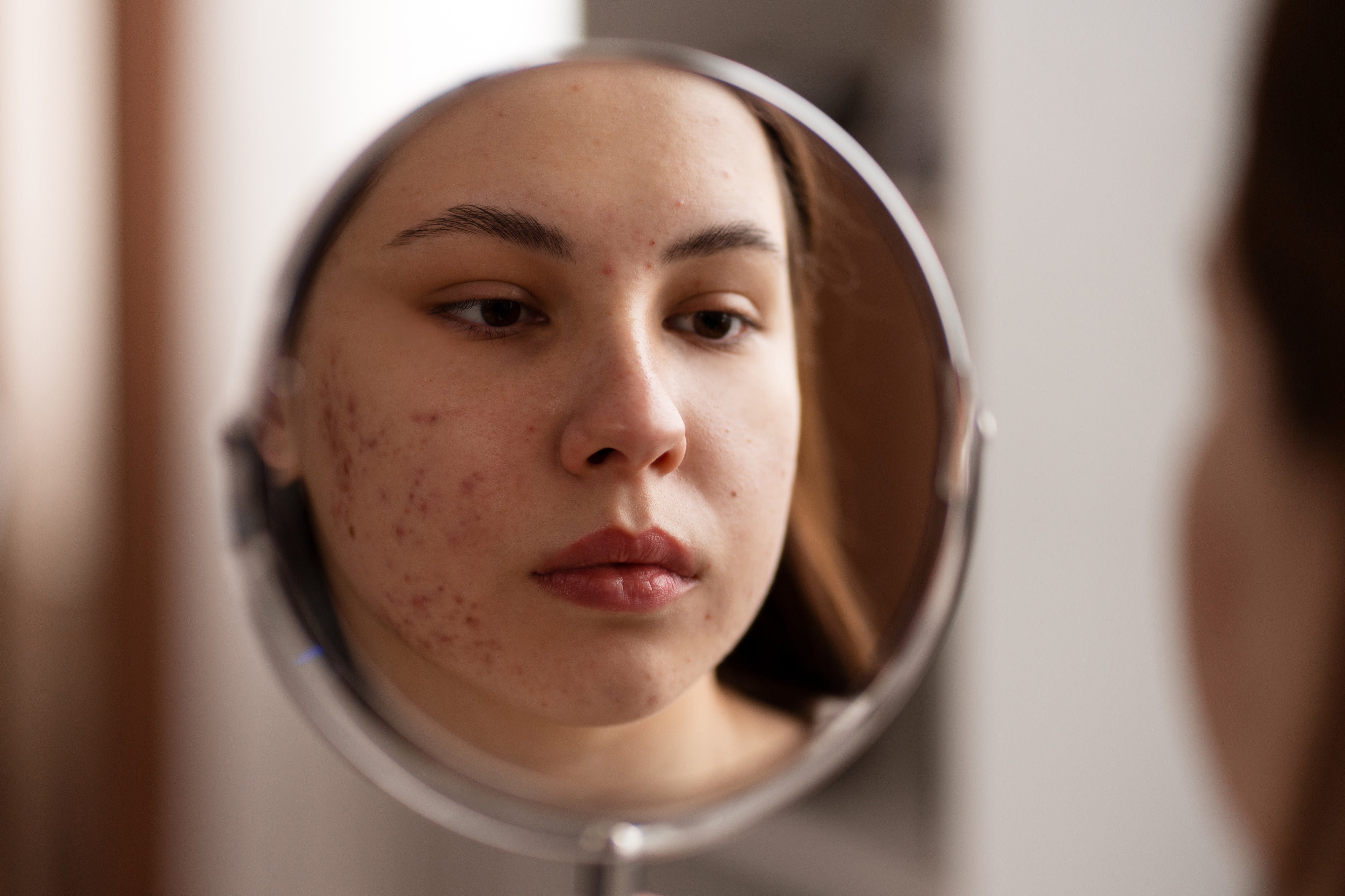Top 10 Proven Tips for Preventing Acne Breakouts

Achieving radiant, clear skin is key to elegance and confidence, but the journey can be tough, especially with persistent acne breakouts. In today's fast-paced, image-conscious world, finding effective acne solutions is about more than looks; it's also about overall well-being. Lifestyle choices play a crucial role in skin health, making a comprehensive approach to acne prevention essential. This expert guide offers valuable insights and proven strategies to help you manage acne and take control of your skin's future. Whether you're facing teenage acne or unexpected adult breakouts, let this guide lead you to beautiful skin.
Importance of Preventing Acne Breakouts
Preventing acne is crucial because it not only helps maintain clear skin but also plays a significant role in preserving self-esteem and emotional well-being. Dealing with acne can lead to feelings of embarrassment and self-consciousness, often affecting social interactions and overall mental health.
By focusing on prevention, individuals can avoid the physical and emotional stress that comes with breakouts. Moreover, preventive measures can lead to healthier skin in the long run, reducing the need for harsh treatments and their potential side effects. Prioritising prevention empowers individuals to feel confident in their skin, fostering a positive self-image and promoting overall happiness.
Understanding the Causes of Acne
Acne occurs when hair follicles become clogged with oil and dead skin cells. Factors such as hormonal changes, bacteria, and certain medications can contribute to breakouts. Additionally, lifestyle habits such as poor diet, lack of sleep, and stress can also trigger acne.
Related: Why Adults Get Acne: Understanding the Root Causes and How to Treat Them
Proven Acne Prevention Tips
1. Keep Your Skin Clean
Regularly washing your face with a gentle cleanser helps remove excess oil and dirt that can lead to acne. Aim for twice a day. Avoid over-washing or using harsh products, as these can strip your skin of its natural oils and cause irritation, doing more harm than good.

2. Use Non-Comedogenic Products
Choose makeup and skincare products labeled as non-comedogenic, meaning they won’t clog pores. Look for water-based, oil-free, and non-acnegenic products to reduce the risk of breakouts.
3. Moisturise Regularly
Even oily skin needs hydration. Use lightweight, oil-free moisturisers to keep skin balanced without adding excess oil.
 Biopelle Tensage Advanced Cream Moisturizer
Biopelle Tensage Advanced Cream Moisturizer
4. Don’t Touch Your Face
Avoid touching your face throughout the day to minimise the transfer of bacteria and oil from your hands to your skin.
5. Manage Stress
High-stress levels can trigger hormonal changes that result in breakouts. Incorporate stress-reducing activities like yoga or meditation into your routine.
6. Follow a Healthy Diet
A balanced diet rich in fruits, vegetables, and whole grains can improve skin health. Consider reducing sugar and dairy intake, which may aggravate acne.
7. Stay Hydrated
Drinking plenty of water helps flush toxins from your body and keeps your skin hydrated.
8. Get Enough Sleep
Aim for 7-9 hours of quality sleep each night to allow your body to repair and rejuvenate your skin.
9. Consider Over-the-Counter Treatments
Products containing benzoyl peroxide or salicylic acid can help manage and prevent breakouts.
10. Consult a Skin Professional
If acne persists, seeking professional advice can provide tailored treatment solutions for your skin type. A dermatologist can also help identify any underlying medical conditions that may be contributing to your acne.
Specialised Treatment Options for Acne
When battling persistent acne that resists conventional preventive measures, delving into specialised treatment options becomes a vital strategy. These advanced techniques often require consultations with dermatologists, employing state-of-the-art technologies or formulations designed to address specific acne concerns. By tailoring treatments to individual skin needs, these specialised interventions aim to effectively and efficiently reduce breakouts, minimise scarring, and enhance overall skin clarity. With the guidance of skincare professionals, exploring these specialised treatments offers a bespoke approach to achieving a complexion that exudes both health and radiance. Here are some options to consider:
1. Topical Retinoids
These vitamin A derivatives are essential for unclogging pores and promoting cell turnover, which helps prevent new acne from forming. By increasing skin cell exfoliation, they not only reduce the occurrence of breakouts but also improve overall skin texture and tone.
Read More: Clogged Pores 101: What They Look Like, Root Causes, and Skin Care Tips
2. Oral Medications
In cases of more severe acne, dermatologists often prescribe oral antibiotics or hormonal treatments. These medications target the underlying causes of acne, helping to reduce inflammation and bacteria on the skin while balancing hormonal fluctuations that may contribute to breakouts. Regular follow-ups are crucial to assess the effectiveness and adjust treatment as needed.
3. Chemical Peels
 Get a consultation for Skin to Heart's Cosmo Peel
Get a consultation for Skin to Heart's Cosmo Peel
Chemical peels are a popular option for treating acne-prone skin. These treatments use a combination of acids to exfoliate the top layers of skin, unclog pores and reduce oil production, helping to prevent future breakouts.
Debunked Myths About Acne Prevention
- Eating greasy foods causes acne.
Fact: While diet can influence skin health, greasy foods alone do not directly cause acne. Hormones, genetics, and skin care practices play a much larger role.
- Only teenagers get acne.
Fact: Acne can affect people of all ages, including adults. Hormonal changes, stress, and other factors can trigger acne at any stage of life.
- Tanning can cure acne.
Fact: Sun exposure may temporarily dry out some acne, but tanning can actually worsen skin damage and lead to more breakouts in the long run, along with increased risk of skin cancer.
- Squeezing pimples helps them go away faster.
Fact: Squeezing pimples can push bacteria deeper into the skin, leading to more inflammation and potentially scarring. It’s best to let them heal naturally or seek advice from a dermatologist.
- Chocolate causes acne.
Fact: While some studies suggest that sugar and dairy may exacerbate acne for some individuals, chocolate itself has not been definitively linked to acne. Moderation and individual observation are key for managing triggers.
- Washing your face more often will clear up acne.
Fact: Over-washing can irritate the skin and worsen acne. It's important to find a gentle cleansing routine rather than excessive washing.
- Only people with oily skin get acne.
Fact: Acne can occur in individuals with all skin types, including dry and combination skin. It's often a result of clogged pores, bacteria, and inflammation, not just oiliness.
FAQs
Why am I breaking out so much?
Breakouts can be influenced by various factors including hormonal changes, stress, and diet. Identifying triggers can help in managing acne.
What are the best treatments for hormonal acne?
Hormonal acne may benefit from treatments such as birth control pills, anti-androgens, or topical retinoids.
How long does it take for acne to clear?
The timeline for acne clearance varies; mild acne may improve within a few weeks while more severe cases can take several months.
Take Control of Your Skin with Skin to Heart
If you're dealing with persistent acne, don't hesitate to consult a skin expert for personalised treatment options. With the right guidance and a holistic approach, you can attain a clear, radiant complexion that showcases your inner beauty. At Skin to Heart, we prioritise your skin's health from the inside out. Let us assist you in taking control of your skin and embracing your natural beauty. Schedule a consultation with one of our expert estheticians today, and together we can develop a skincare routine tailored to your specific concerns, helping you achieve the results you desire.
- Tags: acne
0 comments

